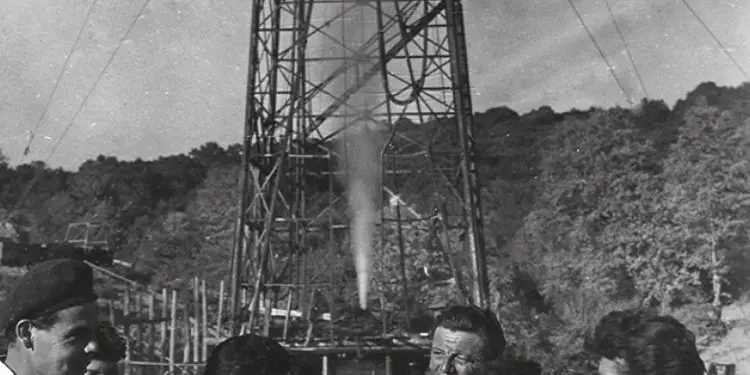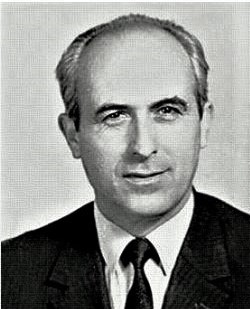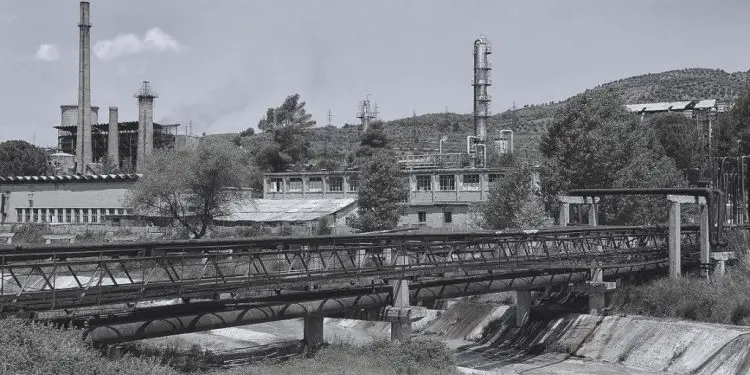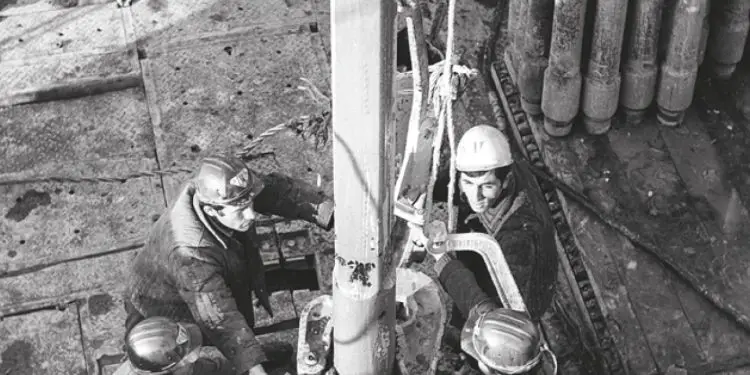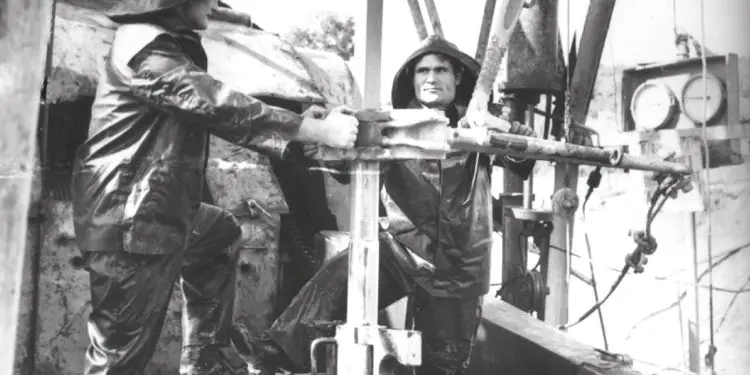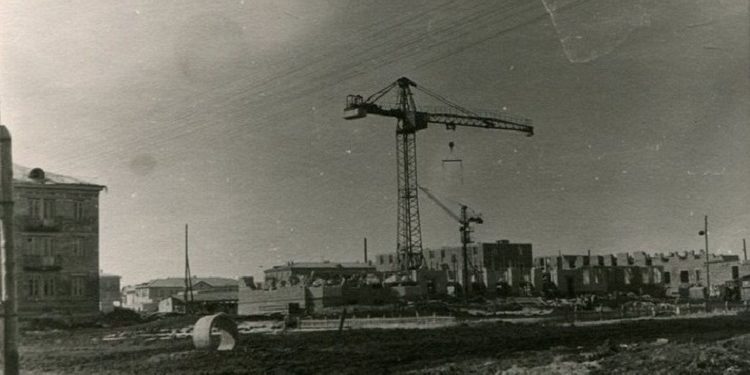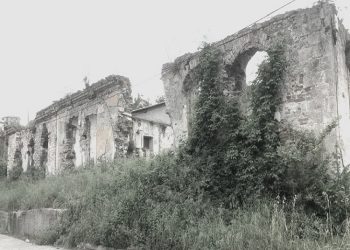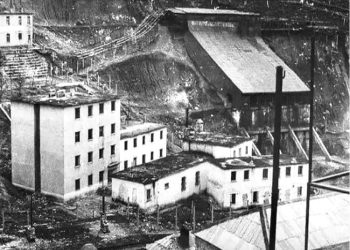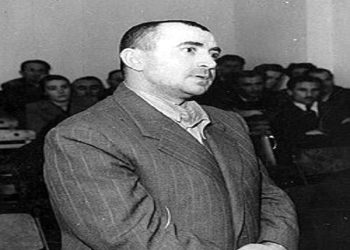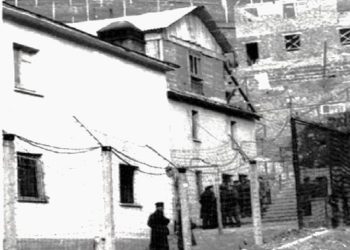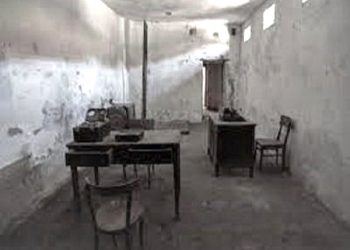By Petraq Xhaçka
The ninth part
Memorie.al / The purpose of this book is to join the efforts made to present the truths and horrors of the communist dictatorship in Albania. The main purpose of the book is not to show our people or anyone else, that we oilmen have been innocent, because this has become known from publications in our press, from foreign televisions, as well as from direct meetings with the International Forum and the Albanian Human Rights. The author’s desire, is that through this story, together with other stories, fight any manifestation in any form, even moderate, that he may have to create a communist society. I think that even through this bitter personal history, the cruel, treacherous and overbearing face of Enverism will appear, that for half a century, held the knife with the tip in the chest of the Albanian people, with a pine eye, intercepting the movements for salvation from the outside, or rebellion of the people themselves, ready to push the knife to the heart, at the first movement. The events have been set in the economic fields where it has appeared most strongly, such as the oil and gas industry, where I was fortunate to pour my energies, for a lifetime, and become a participant and witness in those events. All the events that are written in this memoir are true, not only without any exaggeration or embellishment, but perhaps, I don’t know how much I was able to present the terrifying force of the events that took place in that decadent system of socialism, where no there was no human feeling.
Continues from last issue
Populism and mediocrity
After 1965, we managed to go to some Western countries for experience with groups of specialists. These technical visits were very useful for me. I became closely acquainted with advanced technique and technology, especially the American one in the field of seismic and electric well logging. Of value were the gravimetric and laboratory studies of petrography and geochemistry among the French. I called it my duty to make this technique and relevant work methods known to our specialists.
For those things we had in hand, we set ourselves the task of knowing them and putting into practice our complex works for studies of the designs of new research wells, especially. This experience had a positive effect on increasing the level of geological studies in our country.
Some research methods could be carried out with the laboratory equipment of our Petroleum Institute. But most of the innovations we saw in foreign oil companies were related to significant spending needs. Moreover, the equipment and apparatus had to be bought in Western countries and in the USA. Now one can imagine how the bureaucrats of the Labor Party would receive this request.
I, however, for the benefit of the development of the oil industry in Albania, called it my duty to submit to the government the need to buy those equipment from the West. It was as if lightning fell before their feet. They were upset and categorically refused such a step. It was not too surprising, as we were already used to this closed mentality and these one-sided demands. They demanded that new deposits be discovered every year, and they planned themselves, contrary to the opinion of geological specialists. Planning was done according to their needs and not according to our real possibilities.
In this clash, the scraping of mediocre apparatchiks, without any technical knowledge and often without educational background, was dominant. They did not understand the possibilities, our geological reality and the technical level of the geological-geophysical complex, especially the seismic one. Of course, their predictions could not be realized, and thus began the numerous “rainfalls” of criticism that fell from above. Their criticisms and dissatisfactions did not remain without echo and support. Down here at the base, there were a lot of sick critics, careerists, immoral kissers, who had nothing to do with the work of realizing those inflated plans.
They were far from any kind of responsibility for the failures, therefore, men, they gave the push, the conscientious work of the geologists, without mercy. It became a way for oil to be hit and serve as shooting boards, first of all, geology specialists, because due to the negative wells that were inevitable, anyone who was free to interpret without a thorn in their feet, and speak what against them. More often, this was done mainly for show, to publicly display the communist grief, the patriotic concern full of qualities, which were needed to achieve the privileges that the critics had as their goal.
Thus, on the blood, sweat and misfortune of others, they raised their careers and well-being. This phenomenon, which later continued to grow, encouraged by the party leadership, led to the punishment of many geologists, but inevitably led to a decrease in the effectiveness of research work, and prevented the achievement of those effectiveness indicators, that could be carried out by the geological specialists themselves, in case they were free in their judgments and works, without constraints, without the sword hanging over their heads. Unfortunately, for decades in Albania, it has been thought that a scared and threatened person works harder and especially better.
Especially in the years 1967-68, geologists who were directly involved in the design studies of research wells began to be constantly pressured by state leaders, district party committees, and the oil industry. For every negative well, they raised a mountain of harsh criticism, without scientific arguments, because they neither knew science nor arguments. They only wanted it to be known from the top in the Political Bureau that; “so and so” person, severely condemned the authors of these wells. Waving the latest bulletins from Tirana in front of their noses, he emphasized that until these wells come out negative, the designers have not implemented the “Party’s orders”!
This unfair pressure greatly inhibited the free development of geological thoughts and often geologists were forced to join even for those, solutions or cases that they were not convinced should be done in the field of research. But since those in leadership were looking for it, the geologists could not find forces and allies to oppose them.
There were frequent cases when notifications came from villagers and citizens, that in this or that place, signs of oil were visible on the surface and it was worth doing research, with deep wells. Gathering information from ordinary people about local oil shows is an integral part of the working method. And this is universally known. But they were greatly encouraged by the state leaders, making the belief absolute that when there are signs on a surface, there is definitely oil, even in its depth. These announcements are followed by geologists, but in no way can they serve as supporting arguments for drilling oil exploration wells.
A number of other geological factors are needed to decide whether to drill a well. In regions, like that of our country, with a very developed tectonics, as a result of erosion, the oil beds have been broken and as a result of migration, those signs are found in abundance. And this, not only is not positive, but it is simply a disaster, since the oil beds that were once there are now destroyed. One such case was the one in the Dajti mountain area, east of Tirana, for which we were put under a lot of pressure, so much so that, as always, the honesty of the petroleum geologists was questioned.
“Why don’t you geologists drill an exploration well there? There on the surface, some workers of a limestone quarry have found signs of oil! Understand? The quarry workers are worried, and you, not at all”?! Despite our explanations and arguments, that there were no necessary conditions to preserve the oil deposits, I was forced to go to the country several times, even in the company of the Minister of Industry. I noticed that the minister and his circle remained dissatisfied. Perhaps in themselves, they raised questions about the possibility of my hostile work.
These various interventions and pressures made the specialist’s work very difficult. They were reflections of the methods of the communist dictatorship in our country, so that everything was done as thought from above, even in the economic field of various specialties, such as in industry and agriculture. In general meetings, party conferences, and other forms, the leaders of geology faced criticism and pressure, which today you simply cannot imagine. The atmosphere became unbearable, both from the representatives of the center, and from some tail-comb workers, or many shoe-licking apparatchiks, who made even the most serious accusations about the research works, without having even the most elementary knowledge of geology and the practice of studies and designs of wells, which in our country did not differ from what the rest of the world did.
At this time, State Security employees for the oil sector came more frequently to the Institute, who held talks and interrogated various oil workers, and sought their opinions, especially on the issue of research. Everyone noticed these things and we worked with great tension and fear. The oilmen saw that everything glorious was being forgotten, which had been achieved during these few years by our geologists, in the discovery of new reserves and prospects.
In the 1960s, for example, there was constant pressure from state leaders as to why we geologists did not apply Enver Hoxha’s statement to look for the “big mother oil” in the leached limestones, under the country – the source of Kuçova?! This pressure became so great that it was taking on the color of opposition to the party, and as a result it was decided to design a well, to verify the deep cutting of the limestones, which in itself could constitute an object of research for the future, because the premises were not very favorable.
The well was drilled and the result was negative. The funniest and most expected thing was that those who did not stop asking for the drilling, now jumped to the other side of the barricade, that of the harsh critics, forgetting that they were the ones who encouraged the drilling of this well. Such interventions by the leader of the dictatorship, Enver Hoxha, became more frequent and larger later, treating them both in the party press and in the so-called “works of Enver Hoxha”, in volume publications or in the special book “For Oil”, in 1975.
Due to the complete lack of support from above, to the debates I was having regarding the planning of the quantities of oil and gas that would be discovered in the future, to the official proposal to buy Western technology and techniques, I apparently, I had filled the cup. Particularly pronounced contradictions, I had with the First Secretary of the Berat District Party, Pirro Gusho, and with the head of the Party Committee for oil, who had concentrated his reading and culture only on the series of works of the dictator. For him, the term specialist was equivalent to saboteur, so you didn’t need to listen to what they had to say!
This person had some more anger with me. Months ago, in order to make it easier for the specialists of the Institute to study the little Western American and French technical literature that we received, I took the initiative and opened foreign language courses in English, French and Italian. . I thought that this would have a positive effect on the introduction of the new technique. But no way, the party didn’t think like that: This, “the party”, the First Secretary of the Party Committee on Oil, called me one day and rushed at me in a panic:
– Why did you, Xhaçka, open these foreign language courses? Don’t you worry that the specialists of the Institute, watching on TV and understanding better the foreign programs, will make us here bourgeois and hostile propaganda?!
– No, Comrade First Secretary, – I answered calmly.
– All this is done to better study the Western literature that we order, and now, fortunately, it comes to us regularly…!
– We don’t need foreign languages! We will also stop orders for literature. We have full technical literature. We have many Russian books that specialists can study well!
I calmly continued to convince him that languages were useful, that we already had a rich professional literature, to introduce the new technique. I told him that they were not done to deny the Russian literature, which we had, but it was insufficient, especially in the field of seismic, complex laboratory studies and geological follow-up of wells.
But he did not agree with my explanations and gave me a strict military order to close the foreign language courses at the Scientific Research Institute. The mediocrity of the Party’s leadership in the district damaged the work, not creating opportunities to get to know new science from the advanced countries of Europe, and especially the American ones. Then I was forced to close the foreign language courses…!
So, in 1969, I was dismissed from the post of deputy director of the Petroleum Scientific Institute in Kuçovo. After I was dismissed, Pirro Gusho went to the Institute and, among other things, described me as a specialist, a leader with foreign concepts, who, contrary to the teachings of the party, puts machines and equipment first, then people.
As a result of these erroneous concepts of the party leadership, based on the Marxist-Leninist theory, on the role of man and machines in economic development, they did not take measures to empower with seismic and coring equipment, at the level required by the time. As a result, in co-dependency with other subjective and objective factors, from 1969 until 1975, no new source-site, with an industrial character, was found in our country, except for some expansions in discovered source-sites. before.
After the dismissal, I was removed from the Institute and appointed to a geology office, in the General Directorate of Oil Extraction, in Patos. Despite the high results achieved that decade, in oil research for the conditions of our country, they were very quickly forgotten as the work done by me, as the assessments made by the state leadership.
I was left aside, I who led the geological service, the numerous decorations awarded and the Republic Award of Kl. II, “For high results in scientific research work, in the field of petroleum geology in Albania”.
In the new task, I devoted myself again with great strength to the work of that study in particular. A valuable person for your country and people, you can be anywhere. I began to concentrate again on the problems of that branch, with which I took up the first year of my return from higher studies. As a whole, the work I was doing began to be evaluated as quite satisfactory and effective, both by the base enterprises and by my colleagues, in the interest of increasing oil production and especially the conservation of natural resources, for a rational use, as it was possible more, within the conditions dictated to us by inflated and scientifically unargued plans.
From 1969 to 1973, the University of Tirana asked me several times as a lecturer. The governing bodies in the district and in the center decided not to let me leave and kept me in Patos and Fier for years. From the party leaders in the district of Fier, where Gushoja from Berat came as First Secretary, I was seen as a person, not good for them. For this, they removed me from the Scientific Council of the Institute for Geology. They did not call me for any opinion in the field of research, although I had worked hard for nearly ten years in this field. Even when they came to our offices in Patos, the bosses now didn’t hesitate to greet me. Don’t let them talk to me! As is known, in those times, housing was assigned by the state and the work center. They left me for almost four years, without an apartment in Fier!
I was forced to support my family in Kuçovo and to live in the building of single technicians in Patos, in a room, with my classmate and colleague, Niko Goxhobash, who, with his very close attitude, made it a little easier for me my life away from family, away from some people who have a fantastic sense of smell, to understand you when your feet start to slip.
In 1971, reorganization took place in the oil industry. A general directorate for all oil based in Fier was created, from two general directorates that were previously, one for research, the other for oil and gas extraction. The Petroleum Institute and the Research Directorate were transferred from Kuçova to Fier. Geologist Beqir Alia, who took my place as deputy director, was now appointed director of the Petroleum Geological Institute. He was a quiet man, he had a long experience and good work results in the oil extraction company in Patos.
– With this reorganization, I was transferred to another sector, director of the Directorate of Drilling, under the General Directorate, which was not for my specialty. It was more like an appreciation of good work, in the extractive sector. This was a sector that, in addition to organizational work, required me to study literature, and learn from the engineers and drilling workers, quite a lot of practice, for a more scientific organization of work, in the assembly and drilling phase of wells, with a rather large park, of dozens of probes of great depths, up to 6000 meters.
During these years, we tried and introduced several new drilling methods, such as the use of hydromonitoring drills, which had higher yields, improvements in the technology and the use of forced drilling regimes, as well as in the technology of well cementing of oil. All these were not always easily accepted by the drilling brigades.
But, with a disciplined work, it became possible to increase the drilling rates and better solve the geological tasks of the wells, up to the specified project depths, or even deeper, becoming a good support for the Institute Geological, without putting them in front of subjective difficulties. Memorie.al
The next issue follows




